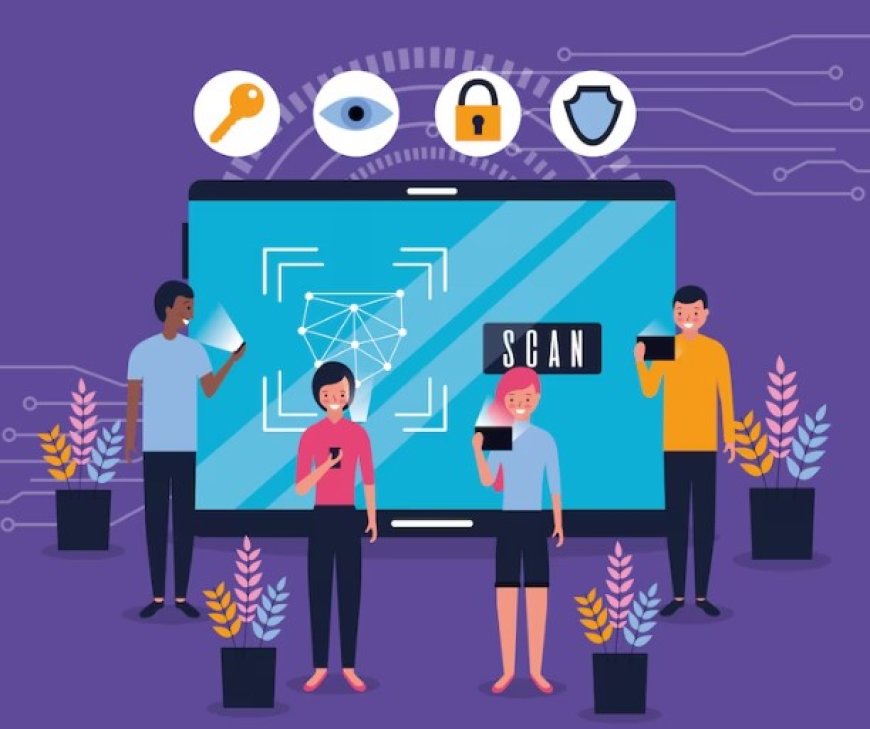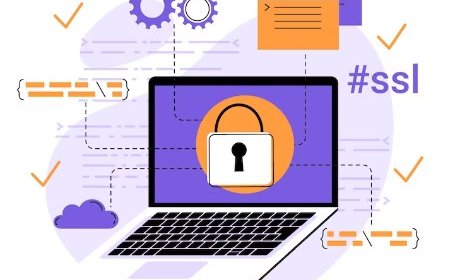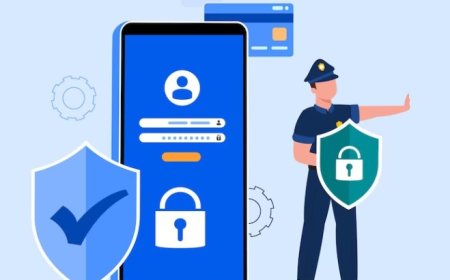Cyber Security For Small And Medium Enterprises
Discover cyber security, SMEs, protection, threats, strategies, tools, best practices, data, technology, risk management, and compliance.

Cyber security for small and medium enterprises (SMEs) refers to the practices, measures, and strategies implemented to protect the digital assets, systems, and data of businesses operating on a smaller scale. It involves safeguarding against cyber threats, such as unauthorized access, data breaches, malware attacks, and other forms of cybercrime that can potentially disrupt operations and compromise sensitive information. As SMEs are increasingly becoming targets of cyber attacks, prioritizing and investing in cyber security is crucial for their survival and growth in today's digital landscape.
Importance of Cyber Security for SMEs
Cybersecurity for small and medium enterprises (SMEs) is of paramount importance due to the growing cyber threats targeting them. SMEs are increasingly becoming prime targets for cyber attacks, as they often have limited resources and may lack robust cybersecurity measures. These attacks can have a significant impact on SMEs, ranging from financial losses and reputational damage to business disruption and customer distrust.
The potential impact of cyber attacks on SMEs cannot be underestimated. Data breaches, ransomware attacks, and other forms of cyber threats can lead to financial loss through stolen funds, intellectual property theft, or regulatory penalties. Moreover, the reputational damage resulting from a cyber attack can erode customer trust and loyalty, impacting long-term business sustainability.
SMEs face unique challenges in managing cybersecurity. Limited budgets and resources often mean that SMEs may not have dedicated IT or cybersecurity teams. This lack of expertise and dedicated personnel can make it more challenging to implement and maintain effective cybersecurity measures. Additionally, SMEs may have a complex technology ecosystem, including third-party vendors and contractors, which introduces additional vulnerabilities and requires diligent risk management.
Given these factors, SMEs must prioritize cybersecurity and take proactive measures to protect their digital assets, customer data, and business operations. By understanding the specific cyber threats they face, SMEs can adopt tailored security measures and leverage available resources such as cybersecurity frameworks, best practices, and affordable security solutions to enhance their cybersecurity posture.
Common Cyber Security Risks for SMEs
SMEs are vulnerable to several common cyber security risks that can compromise their digital assets and sensitive information. These risks include:
-
SMEs are frequently targeted by phishing emails and social engineering tactics that aim to trick employees into revealing sensitive information or granting unauthorized access. These attacks exploit human vulnerabilities and can lead to data breaches or financial losses.
-
SMEs are often targeted by ransomware and malware attacks, where malicious software is used to encrypt data or disrupt business operations until a ransom is paid. These attacks can cause significant financial and operational damage if proper security measures and backups are not in place.
-
Many SMEs overlook the importance of strong passwords and multi-factor authentication, leaving them susceptible to unauthorized access. Weak passwords can be easily guessed or cracked, providing hackers with access to sensitive information or systems.
-
SMEs may have limited resources to invest in comprehensive employee training programs on cyber security best practices. This can lead to a lack of awareness among employees about the risks and proper security protocols, making them more susceptible to social engineering attacks or inadvertently compromising sensitive data.
To mitigate these risks, SMEs should prioritize employee education and awareness programs, implement strong password policies, regularly update software and systems, and deploy robust security solutions such as firewalls and antivirus software. It is also crucial for SMEs to establish incident response plans and backups to ensure business continuity in the event of a cyber attack.
Essential cyber security measures for SMEs include
-
Regularly updating and patching software and systems to address vulnerabilities and protect against known exploits.
-
Implementing strong access controls and authentication mechanisms, such as multi-factor authentication, to ensure only authorized individuals can access sensitive information and systems.
-
Conducting regular data backups and implementing disaster recovery plans to minimize the impact of data loss or system disruptions caused by cyber attacks.
-
Educating employees on cyber security best practices, including password hygiene, recognizing phishing attempts, and the importance of safe browsing habits, to build a culture of security awareness within the organization.
Managed Security Services for SMEs
Managed security services offer SMEs the opportunity to outsource their cyber security needs to specialized providers. These services provide a range of benefits, including:
Access to expert knowledge and resources:
Managed security service providers (MSSPs) have dedicated teams of cyber security professionals who possess the expertise and experience to handle various security challenges.
Cost-effective solutions:
SMEs often face budget constraints, making it challenging to establish and maintain an in-house cyber security team. Managed security services offer a cost-effective alternative by providing access to advanced security technologies and services at a fraction of the cost of building an in-house team.
24/7 monitoring and response:
MSSPs offer continuous monitoring of networks and systems, promptly detecting and responding to security incidents. This proactive approach helps minimize the impact of potential breaches and significantly reduces the response time to mitigate threats.
When selecting a managed security service provider, SMEs should consider factors such as the provider's reputation, track record, range of services offered, scalability, and the ability to align with the organization's specific security requirements. Conducting thorough evaluations and due diligence will ensure the right provider is chosen to meet the unique needs of the SME.
Budget-Friendly Cyber Security Solutions for SMEs
-
Utilizing open-source security tools can help SMEs implement effective cyber security measures without incurring significant costs. These tools often offer robust features and functionalities for threat detection, vulnerability scanning, and network monitoring.
-
Cloud-based security solutions provide SMEs with access to enterprise-level security infrastructure without the need for extensive hardware investments. These solutions offer scalable and cost-effective options for securing data, applications, and networks, while also providing centralized management and monitoring capabilities.
-
SMEs can leverage collaborative security initiatives and information sharing platforms to stay informed about emerging threats and best practices. These platforms allow SMEs to benefit from collective intelligence, industry-specific insights, and cost-effective security solutions developed through collaboration with peers and industry experts.
By adopting these budget-friendly cyber security solutions, SMEs can enhance their security posture while managing costs effectively. It is important for SMEs to assess their specific needs and evaluate the suitability of these solutions in alignment with their business goals and risk tolerance.
Incident Response and Business Continuity for SMEs
Developing an incident response plan:
SMEs should create a comprehensive incident response plan that outlines the steps to be taken in the event of a cyber security incident. This plan should include roles and responsibilities, communication protocols, and procedures for containment, mitigation, and recovery.
Testing and updating incident response procedures:
Regular testing and simulation exercises should be conducted to ensure the effectiveness of the incident response plan. This allows SMEs to identify any gaps or weaknesses in their procedures and make necessary updates and improvements.
Ensuring business continuity in the event of a cyber security incident:
SMEs should have strategies and measures in place to ensure business continuity during and after a cyber security incident. This includes implementing backup and recovery solutions, establishing redundant systems and infrastructure, and having contingency plans to minimize disruption and resume normal operations.
By focusing on incident response and business continuity, SMEs can effectively mitigate the impact of cyber security incidents and ensure the resilience of their operations. It is crucial for SMEs to proactively plan and prepare for such incidents to minimize financial losses, reputational damage, and operational disruptions.
Employee Training and Awareness
Educating employees about cyber security risks and best practices:
SMEs should provide comprehensive training programs to educate their employees about the various cyber security risks they may encounter, such as phishing attacks, malware, and social engineering. Employees should be trained on best practices for protecting sensitive data, using secure passwords, recognizing and reporting suspicious activities, and safely using company resources.
Implementing security policies and procedures:
SMEs should establish clear and enforceable security policies and procedures that outline the expected behaviors and actions of employees regarding cyber security. These policies should cover areas such as acceptable use of company resources, password management, data handling and protection, and incident reporting.
Conducting regular training sessions and awareness campaigns:
Regular training sessions and awareness campaigns should be conducted to reinforce cyber security knowledge and keep employees updated on emerging threats and trends. These sessions can include interactive workshops, online courses, newsletters, and reminders about best practices.
By prioritizing employee training and awareness, SMEs can empower their workforce to become a strong line of defense against cyber threats. Employees who are knowledgeable and vigilant can help prevent security breaches and contribute to the overall cyber security posture of the organization.
Engaging with Cyber Security Professionals and Networks
Building partnerships with cyber security professionals:
SMEs can benefit from establishing partnerships with cyber security professionals, such as consultants, managed service providers, or freelance experts. These professionals can offer specialized expertise, conduct security assessments, provide guidance on implementing effective security measures, and assist in incident response and recovery.
Participating in industry-specific cyber security networks and communities:
SMEs should actively engage with industry-specific cyber security networks and communities. These can include forums, conferences, and online communities where SMEs can connect with peers, share knowledge, and learn from the experiences of others. By joining these networks, SMEs can stay updated on the latest trends, best practices, and emerging threats in the cyber security landscape.
By engaging with cyber security professionals and networks, SMEs can tap into valuable resources, expertise, and support that can help enhance their cyber security defenses and stay abreast of the evolving threat landscape.
Cyber security is of utmost importance for small and medium-sized enterprises (SMEs) in today's digital landscape. The ever-growing threat of cyber attacks poses significant risks to their operations, reputation, and financial stability. To enhance their cyber security practices, SMEs should prioritize employee awareness and training, regularly update their software and systems, implement strong access controls and encryption measures, and establish incident response plans. Looking ahead, SMEs should be aware of the evolving cyber security landscape and emerging threats, such as artificial intelligence-powered attacks and the increased use of cloud services. Adapting to these future considerations will be crucial for maintaining a robust and resilient cyber security posture.





































